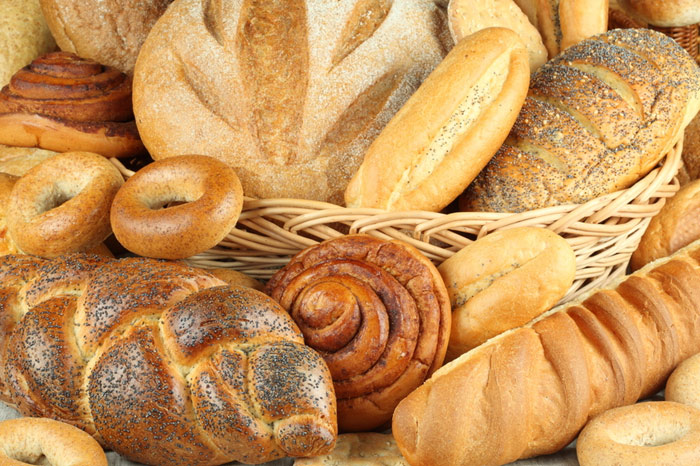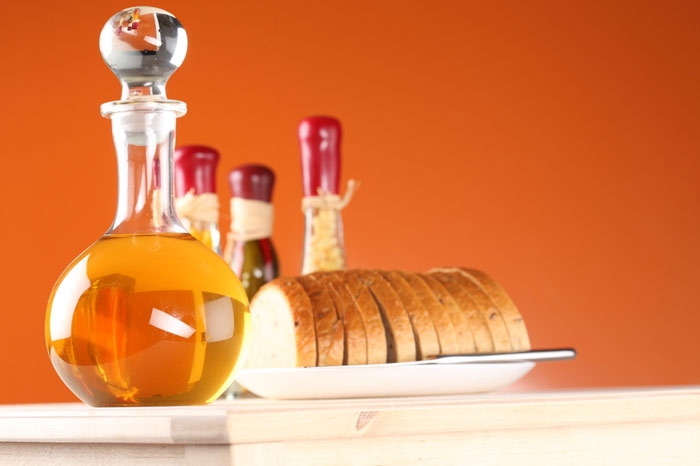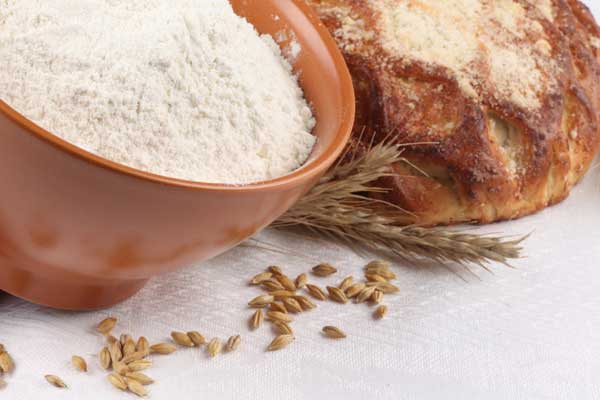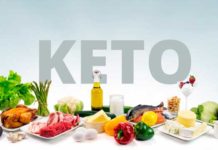 Several generations of children were told to eat their meals with bread. Several thousand theories of healthy lifestyles keep saying that we should, first of all, give up bread and flour products. The truth, as always, is somewhere in the middle.
Several generations of children were told to eat their meals with bread. Several thousand theories of healthy lifestyles keep saying that we should, first of all, give up bread and flour products. The truth, as always, is somewhere in the middle.
Bread is the staff of life
Indeed, bread is one of the major diet elements, which contains the most important substances needed by the body: amino acids, carbohydrates, vitamins, proteins, fats and fiber. Bread is extremely rich in group B vitamins, which cope with a bad temper, increased fatigue, irritability, and discontent. Therefore, it is dangerous to give up bread completely, even when on a slimming diet. In addition, “the staff of life” and bakery products are rich in protein and amino acids. Therefore, they increase muscle activity. Carbohydrates in bread charge our body with energy. Fiber helps to eliminate harmful substances from the body and provides a longer-lasting feeling of satiety. Now, let us answer a few questions.
Question 1. Not by bread alone?
In fact, eating bread alone is not quite healthy, but it is still possible. A more reasonable option is to consume only 100-200 grams of bread per day.
Question 2. With or without bread?
Bread gives a favorable texture and structure to the food consumed, improving digestion. Yes, your grandmother was right; food is better digested with bread. Bread, croutons, and crackers are perfectly combined with soups. So it is very reasonable to have bread with first-course dishes, because the fibers, which are contained in bread, add to the usefulness of the soup. In addition, a person eats a smaller portion because he or she is faster saturated.
There is a rule: do not eat wheat bread with fatty foods. Pork fat, fatty fish, and rich broth go better with rye bread, and meat and potatoes are much better without bread at all. Yes, fish can be eaten without bread, as well. Animal proteins are much more useful with green vegetables, tomatoes, and spicy herbs… However, virtually any vegetables can be eaten with both rye and wheat bread.
Question 3. How to make a proper sandwich?
Do I need to spread butter on my bread? The best and the most useful product that supplements the taste and benefits of bread is extra virgin olive oil. If you want, you can have butter, but not more than 5–10 grams per day. It is better to give up margarine and soft oils that are related to many health hazards. A healthy sandwich can be complemented by a slice of red fish and a tomato or cucumber.
A good addition to a piece of bread is cheese, but its fat content should not exceed 35%. If you eat a sandwich with meat, decorate it with salad. Most importantly – there is no need to increase the glycemic index of bread by spreading jam or chocolate paste on it. You will eat more sweets with bread than without it, and your appetite will be voracious in an hour.
Question 4. Rye or wheat? Which bread to choose?
Wheat bread is high in flour and starch. It is perhaps the most harmful bread. However, if you still want it, choose bread from wholemeal flour with grains of buckwheat, oats, millet,and flax seeds. Such brown bread is very high in fiber, and proteins are rich in lysine. Brown bread removes carcinogens and harmful substances from the body, it is useful for people with vitamin deficiency and diabetes. In addition, this type of bread normalizes metabolism.
Question 5. Which bread is healthier?
It is best to eat bakery products made from coarse flour, which contains more nutrients and trace elements. Bakeries offer many useful and tasty options. For example, there is buckwheat bread with a high content of all the body’s essential amino acids. Buckwheat bread is rich in potassium, phosphorus, iron, zinc, selenium, manganese and magnesium, rutin, antioxidants, and B and E vitamins. It is very useful for people with vascular diseases.
Brown bread with cereal grains is always a good option. It contains potassium, sodium, molybdenum, phosphorus, iodine, iron and calcium, as well as many vitamins B, A, E, and PP. This bread is also very satisfying, and contributes to the normalization of the intestinal microflora. Bran bread, as the name implies, is made from bran. It has a high content of fiber, minerals, vitamins, proteins and nicotinic acid. It strengthens the immune system, removes allergens and toxins. It also prevents gastrointestinal diseases and promotes weight loss. Sprout bread contains no flour, much dietary fiber and a lot of vitamins. It cleanses the body, absorbs harmful substances, and removes them in a natural way. It has a beneficial effect on the skin, hair, and nervous system, and it also lowers cholesterol. Whole grains retain more vitamin B and protein, which means that such bread contains all the nutrients for the skin. Stale bread and crackers are useful, too.
Question 6. With or without yeast?
Yeastless bread is in trend today because it is healthy and safe. This is coarse, dense bread with a high content of vitamins B, PP and mineral substances that remain after baking. It does no harm to the intestinal microflora, contributes to the work of the intestine, and also has anti-inflammatory properties. However, few people realize that any properly baked bread contains no live yeast: it simply dies because of high temperature, like all living organisms. However, at the same time, yeast additionally enriches bread with zinc and iron. Yeastless bread is always more expensive, because of a more complex baking technology. However, the real advantages of yeastless bread have not been confirmed by doctors yet.
Question 7. Am I allowed to eat it?
Bread can be an element of your diet. The most important thing is to choose it correctly. If you have an upset stomach, eliminate brown or rye bread from your diet. Choose dried wheat bread. If you suffer from a disease of the intestine, liver, gallbladder or stomach ulcer, rye bread is contraindicated. Rye bread is best for those who suffer from diabetes, because it contains almost two times less sugar than wheat bread. If you have a heart, stomach or liver disease, it is best to eat either yesterday’s bread or dry it a little. In any case, do not buy bread, which includes hydrogenated oils or fats, cooking oil, margarine, sugar syrup, and caramel. All these ingredients give extra calories instead of health value.




